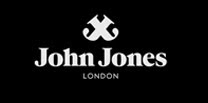
We were recently invited to attend a panel discussion ‘The Art World in Recession – Practical Solutions’, designed for arts professionals and advisors to share their knowledge with younger galleries. Many there have been through at least two recessions so were well placed to share their wisdom and thoughts.
The discussion started with a summary of what a recession is – Keir described it succinctly as a situation where sales subside, cash decreases and debt occurs. He asked the panel for their advice on how to deal with this. A number of thoughts were offered, including:
The panel moved on to discussing how to manage perceptions amongst staff and clients. It was agreed that it is absolutely vital to nurture existing clients as much as possible. Retention is key. Stay in touch with them. Even if they are not buying at the moment, they will do in the future, so make sure the relationship is maintained. New client acquisition is costly and timely. There were stories of a number of established galleries who have recently upset longstanding loyal clients, by selling sought after works to new clients – clearly excited by the opportunity to make a rare sale…
The concept of connoisseurship was debated, with some members of the panel suggesting that there will be a return to this as there is a limited amount of good art on the market. Others felt that the market is now too big - Keir pointed out that more people visit museums and galleries now than attend football games and the market has increased 100 fold in the past 5-10 years. Karsten expressed his distaste for art fairs, which he feels are not a pleasurable way to view art. He added that he hates taking artists to fairs, comparing the experience to ‘taking a free range chicken to a battery farm’.
Jeff suggested now could be a time for galleries to discover new talent. Most of the panel agreed with this, especially when Karsten pointed out that the YBA success in 1990 happened just a year before the recession hit. He felt confident that now is the time for exciting things to happen. Over the past 4/5 years there has been a status quo of vested interests, but everything is open now.
A member of the audience asked about discounting as she was finding more and more collectors pushing for discounts. Karsten felt it was a question of cash flow requirements as to whether discounts can be offered. He also pointed out that it will be difficult to wean collectors off discounts when the market becomes more buoyant.
A gallerist in the audience asked Martinspeed if they gave discounts, as she’d recently contacted them and couldn’t afford their quote. Both Martinspeed and John Jones highlighted that organised clients who plan as far ahead as possible are more efficient with their budgets. Also transparency is key – galleries who are clear about their budgets and work closely with suppliers are more efficient than those who simply shop around and don’t communicate what they are trying to achieve. Both companies work closely with clients and are open to negotiations where possible. Louise Hallett added that there are many ways to save on art insurance and they are working closely with clients at present to address their precise needs.
Louisa Buck reported that from having her journalistic ear to the ground, art is still being sold, albeit not at high levels. In these difficult times it was highlighted that galleries who are doing reasonably well are actually being far more successful than galleries who were successful over recent years, during which time success was, according to gallerist Alan Cristea, ‘as easy as falling of a log’.
Nick suggested that now is a good time for galleries to be ‘housekeeping’ – looking at their Terms & Conditions, staff contracts, leases etc. Alan Cristea felt that it’s important to be careful not to damage morale and set of warning signals by addressing staff contracts as its vital to maintain a good atmosphere in the team now. He felt the same way about artists – relationships are based on trust and by introducing legal contracts this trust could be damaged. Relationships must come first. He mentioned that the Society of London Art Dealers (of which he is Treasurer) offers guidance on Terms & Conditions, addressing subjects such as terms of contract and title of work.
Kirsten from ACE informed the audience that Grants for the Arts has funding of £52m in the UK, of which she has seen up to £4m allocated to visual arts in London in the past. There is less in the budget this year due to funding reductions and the London Olympics, but they are open to applications from artists, including those represented by a gallery.
http://www.hallettindependent.com/










No comments:
Post a Comment